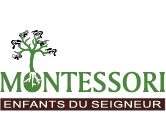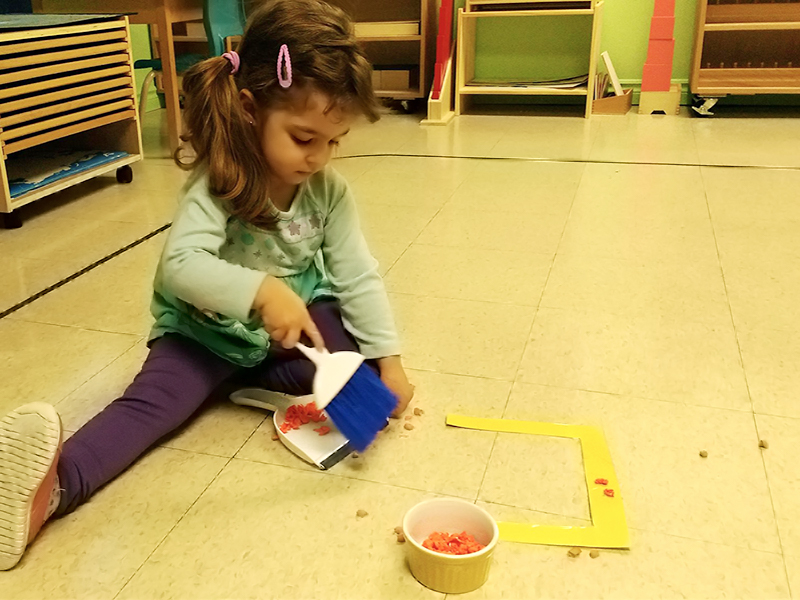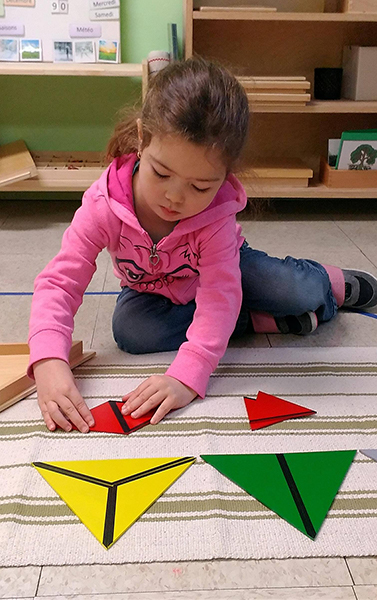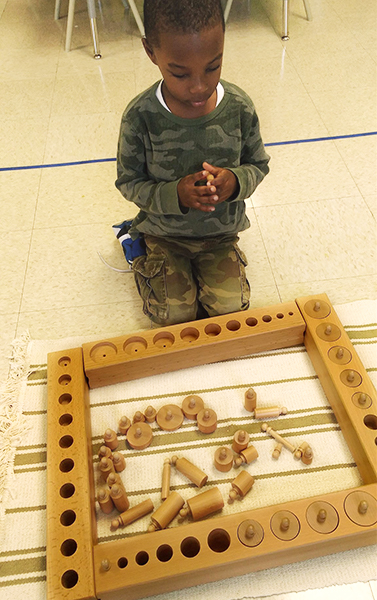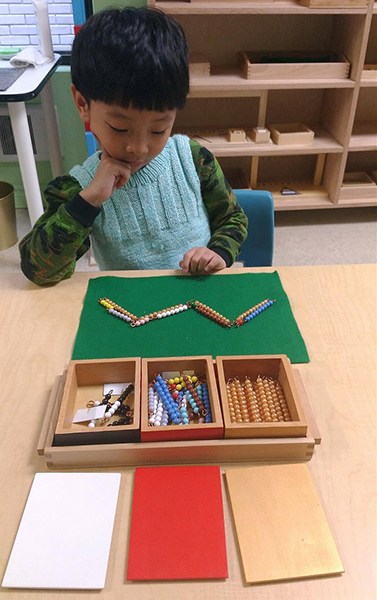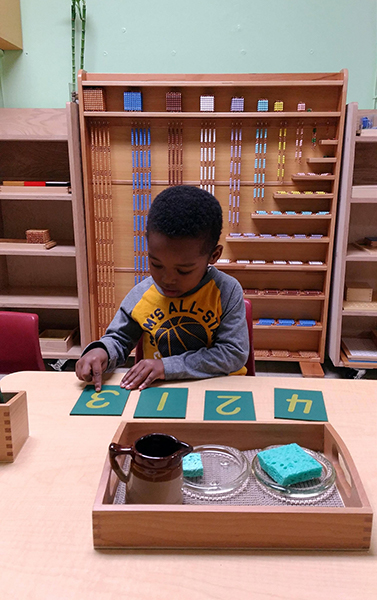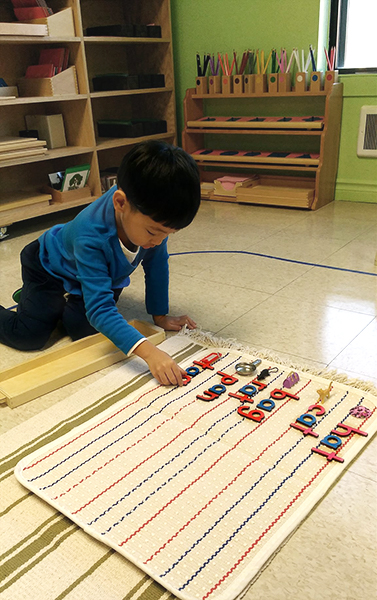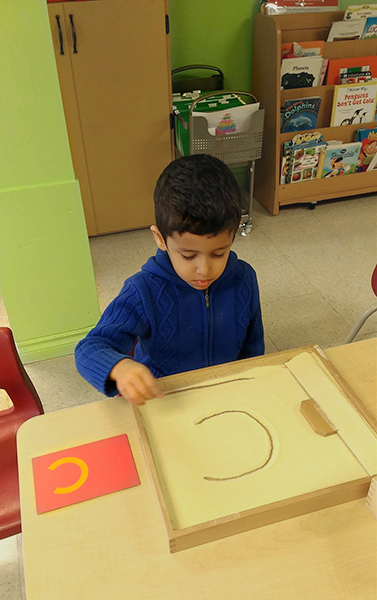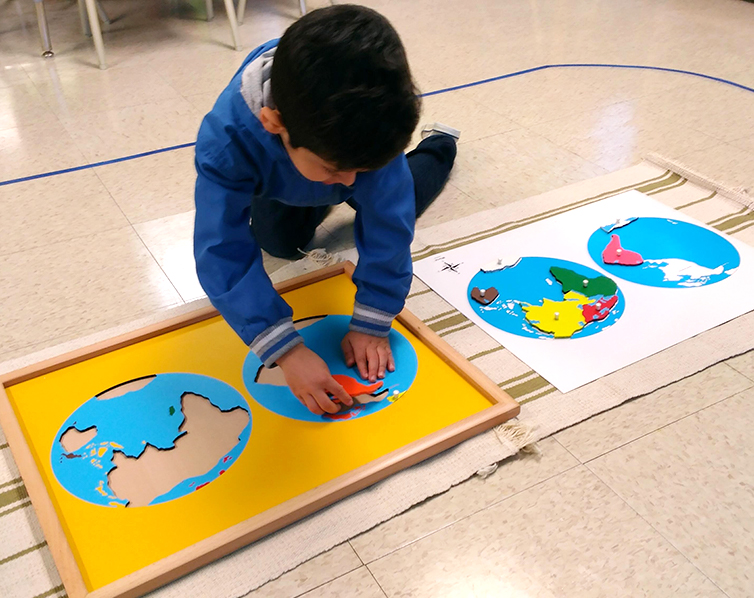Montessori Activities
Practical Life Activities
Practical Life activities are the activities of everyday life. Generally these activities revolve around four areas: motor skills, caring of self, caring of the environment and Grace & Courtesy. Activities like sweeping, watering plants, sewing buttons, washing hands, using a whisk, and polishing silver help the child to engage in thoughtful and significant tasks while developing his concentration, hand-eye coordination, independence, fine motor skills and sequence.
“Any child who is self-sufficient, who can tie his shoes, dress or undress himself, reflects in his joy and sense of achievement the image of human dignity, which is derived from a sense of independence.”
Maria Montessori
Sensorial Activities
The Montessori sensorial materials offer the child the occasion to experience the world through his senses: visual, tactile, auditory, smelling, and tasting. The aims of these activities are numerous, for example:
- Educate the sight to distinguish between sizes by strengthening the child’s visual memory.
- Prepare the child for writing using the 3 finger-grip.
- Form judgement and make decisions.
- Self-educate the child by helping him to correct himself.
“The senses, being explorers of the world, open the way to knowledge. Our apparatus for educating the senses offers the child a key to guide his explorations of the world.”
Maria Montessori
Maths
The Montessori mathematics program starts with basic math concepts such as learning number recognition and counting. The child will also be able to do addition, multiplication, subtraction and division operations. The mathematics program moves therefore from the concrete to abstract mathematical concepts. It is therefore an excellent tool for developing an effective foundation in math.
“Children display a universal love of mathematics, which is par excellence the science of precision, order and intelligence.”
Maria Montessori
Language
Language activities intend to help the children enrich their vocabulary, to develop an understanding, respect and consideration for other cultures. In the Montessori environment, each child learns at his own rhythm. The child is first introduced to the sound of the letters through different materials like sandpaper letters and the moveable alphabet. And then, he will gradually start to read and write words.
Culture
The Montessori culture curriculum offers a wide array of activities. The child has the opportunity to experience different interesting areas such as art, music, geography, botany, zoology, science. Children develop a comprehension and awareness of the world around them.
“Culture and education have no bounds or limits; now man is in a phase in which he must decide for himself how far he can proceed in the culture that belongs to the whole humanity.”
Maria Montessori


